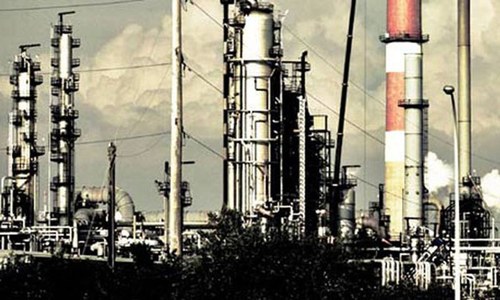ISLAMABAD: Amid calls from the provinces for transparency, the federal government has started real-time monitoring of oil and gas exploration and production (E&P) through a dashboard application provided by a US-based vendor firm.
The petroleum division of the ministry of energy said on Sunday it had introduced ‘an advanced and innovative dashboard application for effective management and monitoring of E&P information for the first time in the country with collaboration of LMKR’- a petroleum technology company.
It said the Exploration Management System (EMS) was a Windows-based, multi-user GIS database application which would enable the Directorate of Petroleum Concession (DGPC) to access real-time E&P data information. “This will help officers to take quick actions/ decisions in case of reduced production, suspended wells, shut-in wells and delayed drilling due to any technical or operational issues”.
On the demand of the provinces, initially by Khyber Pakhtunkhwa and followed by Sindh and Balochistan, the Council of Common Interests (CCI) had decided in November 2017 to share with the provinces real-time data on oil, gas and electricity production and consumption.
Provinces have been demanding data sharing to bring transparency to tax calculation
The provinces have been demanding real-time data sharing to bring transparency to calculation of taxes and duties and its transfer to the provinces on the basis of production and consumption of oil, gas and electricity. The CCI had agreed to have real-time monitoring of oil and gas production and allocation.
The provinces are paid royalty on oil and gas production under Article 161 of the Constitution at the rate of 12.5 per cent at well head price. In all, the provinces are also entitled to receive revenue on four heads from the centre relating to oil and gas production and consumption — gas development surcharge, excise duty on natural gas, royalty on crude, gas and LPG and sales tax.
The petroleum division said that under the prime minister’s vision of digitalisation of Pakistan, Energy Minister Omar Ayub Khan, Special Assistant to the PM on Petroleum Nadeem Babar and the secretary of Petroleum Division supervised the project to actualise it in line with high-calibration within specified time frame.
It said the project had been undertaken without extra budget allocation, provision of IT equipment or any external/foreign assistance as the LMKR had already been holding the E&P data for more than a decade.
The petroleum division said that advanced data filtering tools would provide options to customise the query to see company, basin or country wise historical and current E&P activities and information. Output reports in form of PDF, Excel sheet and GIS layer can be extracted from this application against any standard or customised search. The programme would also provide information about planned versus actual wells and monitoring of performance of the companies against the plans and commitments.
The production dashboard will help monitor daily and weekly production of wells and fields for any company or for all companies. Utilisation of this dashboard is expected to increase oil and gas production by taking necessary actions and corrective measures where production falls or stops due to any reason.
The DGPC would also be able to use this dashboard to set key performance indicators and performance bench marking of E&P companies and provide ease of doing business to the companies while ensuring compliance of rules and commitments made under relevant agreements.
The petroleum division said the EMS dashboard was an initiative towards digital transformation, data analytics, data mining and data learning and was expected to lead the country towards the data-driven decisions and implementations and increased production of gas and oil.
Published in Dawn, August 17th, 2020













































